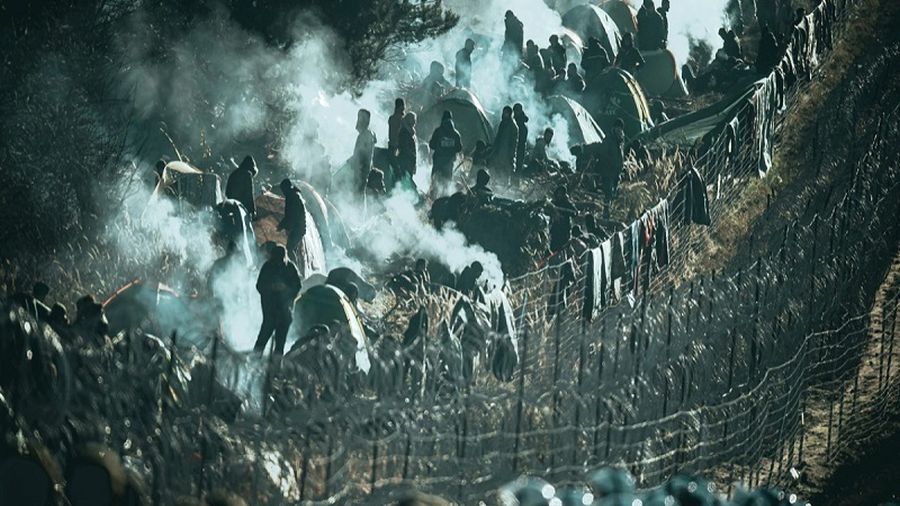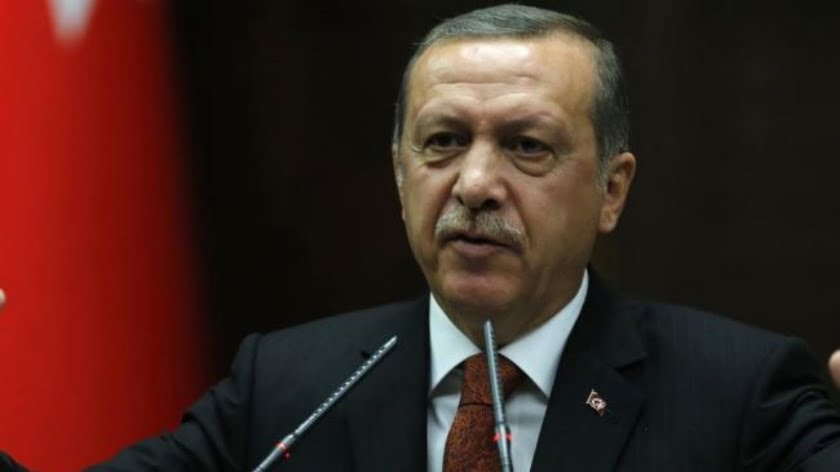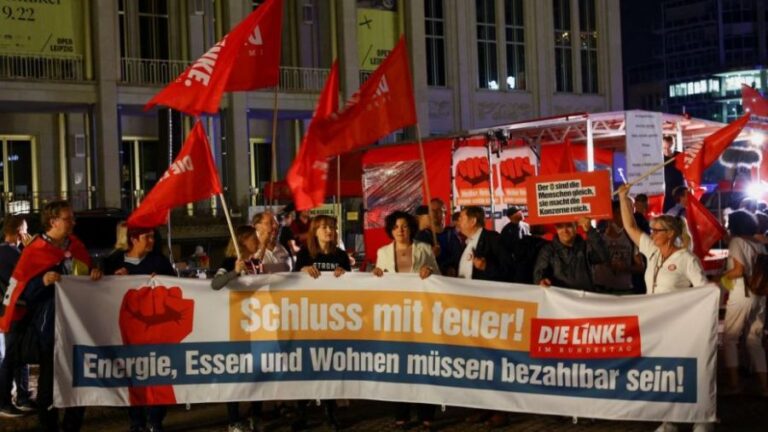Russia’s Response to an Illegal Immigrant Invasion Would Be Different from Poland’s
While the Russian and Polish strategies towards illegal immigrant invaders are the same – assuming that terrorists might be among them out of an abundance of caution, doing everything that’s needed to neutralize the threat, feeling uncomfortable about such a threat amassing in neighboring nations, and preaching national unity during such a time of crisis – their tactics are completely different.
Russia and Poland don’t have a lot in common on the political level nowadays except their similar assessment of the threats posed by illegal immigrant invasions. The author cited official statements from President Vladimir Putin and Foreign Minister Sergei Lavrov, as well as the Russian leader’s 2012 ethnicity-migration manifesto, in support of this “politically incorrect” observation that he put forth yesterday in his piece titled “A Reminder Of Russia’s Skeptical Stance Towards Refugees In Light Of Recent Events”. It confirms that these rival countries also share the same security concerns posed by illegal immigrants and refugees in neighboring nations. Not only that, but they both believe that their countries should stand united in the face of such threats.
Nevertheless, this insight doesn’t mean that Russia would respond to an illegal immigrant invasion the same way that Poland has, such as if for example the Belarusian-based migrants decided to violently storm that transit country’s eastern border instead of its western one. Despite its relevant strategy being almost identical to Poland’s with respect to doing whatever’s needed to prevent such a threat from crossing its frontier, it’s expected that Russia would employ very different tactics to that end unless it was absolutely compelled by circumstances to replicate Warsaw’s approach. Before describing what Russia would likely resort to doing in such a scenario, the reader must become familiarized with Poland’s latest actions in order to appreciate the contrast that’ll soon be made.
That aspiring Central & Eastern European (CEE) leader is accused by its neighbor of using chemical agents against the illegal immigrant invaders. If confirmed, then this could constitute a violation of international law and might lead to Minsk bringing the issue before the UN even if it’s unclear if there’d be consensus within the Security Council to impose punitive costs upon Warsaw for allegedly doing so. Russian Foreign Ministry spokeswoman Maria Zakharova also had a lot to say about this as well. TASS reported her words as follows:
“This concerns the life and health of people. They have been staying there for a while and did not arrive because of a good life and on top of that, they are soaked with water in cold weather. And these are women and children. They are also being gassed, threatened with the use of weapons and physical force.
This relates to the use of loudspeakers, intimidation, a media campaign that does not provide an opportunity to directly address these people, to defend their positions. It is aimed solely at one thing: to justify the approaches and actions by these authorities that are using the inhuman measures that we see.”
Her strong condemnation of Poland’s forceful response to this illegal immigrant invasion as “inhuman” is powerful and suggests that Russia will support Belarus if its ally brings the issue before the UN. Moscow’s approach is that Warsaw is reacting in an excessively violent manner that also incorporates an element of psychological abuse against those who are trying to aggressively storm its borders. Zakharova is especially concerned that women and children are on the receiving end of these tactics. All of this implies that Russia would react in a vastly different way if faced with the same threat.
This segues the analysis into discussing how exactly Russia could be expected to respond to such a scenario. Judging by Zakharova’s words, it would be the opposite of Poland’s approach. In particular, Russia would only resort to such measures as its rival in the absolute worst-case scenario and only if circumstances made it impossible to defend its frontier in any other way. Nevertheless, such a scenario probably wouldn’t even realistically transpire since Russia would work hand-in-hand with Belarus to preemptively thwart that from happening. For instance, it could be expected to encourage Belarus to have the migrants (whose status on that country’s territory is legal since they’re there with a visa and only becomes illegal once they try to storm the border) apply for asylum in that country.
Those that refuse to fulfill their international legal obligation as supposed “refugees” to apply for such in the first safe country they enter (presuming that they weren’t in any safe transit state prior to entering Belarus) could then be stopped by the Belarusian authorities from approaching the Russian border, let alone from assembling massive caravans en route to that frontier or setting up camps in close proximity to it. Belarus isn’t doing this when they approach the Polish border because it lacks the funds after being sanctioned by the West due to Warsaw’s lobbying efforts and also has no political desire to use its already limited resources to protect those same countries that are actively trying to overthrow its leadership. The situation is altogether different when it comes to Russian-Belarusian relations.
Not only does Belarus have the political desire to ensure its Russian ally’s security from any non-state threats which may emanate from its territory, but Moscow could also fund Minsk’s pertinent operations if the latter lacked the funds due to sanctions. The Eurasian Great Power is already helping to subsidize its ally’s economy after the Polish-led Western sanctions caused immense harm to it so it should be expected that Russia would also do what’s needed in order to ensure that Belarus responsibly and in as peaceful of a manner prevents a Polish-like illegal immigrant invasion of the Russian border. The absolute last thing that Russia wants to have happen is for the situation to spiral out of control there and thus compel its border security services to react like their Polish counterparts have as a last resort.
Returning to the Polish approach, while that country has the sovereign right to protect its innocent citizens from the threats posed to them by these illegal immigrant invaders who are violently trying to storm the border (in spite of Warsaw itself exploiting this crisis while hypocritically claiming that Minsk and Moscow are the ones doing so), it should never have even gotten that far. The Polish-led Western sanctions made it economically and politically impossible for Belarus to continue functioning as the EU’s eastern bulwark against non-state threats such as those posed by illegal immigrant invaders. If Poland pragmatically reversed its hostile position towards Belarus and lobbied for lifting the sanctions or at least easing them, then Belarus might have protected it just like it’s expected to protect Russia.
In other words, Poland was compelled to react as forcefully as it did to protect its borders by circumstances that were ironically within its control to prevent this entire time. Its leadership stubbornly clung to their regionally hegemonic regime change plans against Belarus which thus worsened the crisis by economically and politically neutralizing their only potential ally in stopping this threat before it reached the Polish border. By contrast, Russia has done its utmost to retain excellent relations with the most likely transit states through illegal immigrant invaders are most likely to traverse en route to its own borders – Belarus and the Central Asian Republics (CARs) – so that it wouldn’t ever realistically be placed in the same position as Poland inadvertently and unnecessarily placed itself.
Considering this insight, it’s clear to see that while the Russian and Polish strategies towards illegal immigrant invaders are the same – assuming that terrorists might be among them out of an abundance of caution, doing everything that’s needed to neutralize the threat, feeling uncomfortable about such a threat amassing in neighboring nations, and preaching national unity during such a time of crisis – their tactics are completely different. Poland’s are much more forceful, though only because its leadership didn’t truly do everything that’s needed to neutralize this threat before it even approached their border like it could have had it reversed its hostile regime change policy towards Belarus, while Russia’s is the epitome of pragmatism and represents the best approach to stopping such threats.







